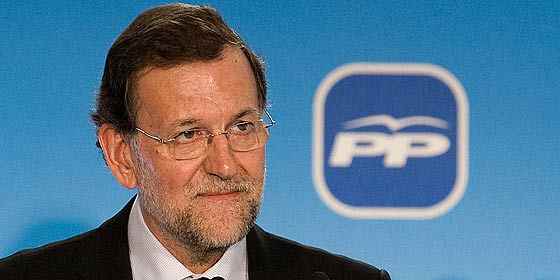
Spain is said to press for ‘transition’ in Cuban government
The Spanish government would like the European Union and Cuba to negotiate an Agreement for Political Dialogue and Cooperation saying that it would contribute “effectively” to “promote a transition” in the Cuban government and “accelerate the processes of economic and political reform in that country.”

That statement reportedly was made in a letter from an unnamed Spanish functionary to Teófilo de Luis, a deputy in the ruling Popular Party. A copy of the letter was obtained by the Spanish newspaper MadridPress, which quoted from it in an article on Monday (Jan. 6). It is unclear how highly placed the functionary is in the administration of Prime Minister Mariano Rajoy.
“The agreement is intended to supersede the Common Position that, since 1996, rules the relations between the European Union and Cuba, conditioning cooperation with the island on advances on issues of human rights and fundamental freedoms and defending a dialogue with the opposition,” MadridPress explains.
According to the functionary’s letter, “the objective of the agreement is to compile the current level of bilateral relations between the European Union and Cuba and promote the processes of reform in that country through a dialogue designed to obtain results, with special emphasis on political reform, the civilian society, cooperation toward development, trade promotion and a regional focus on the Caribbean.”
According to the letter, the agreement would contain the so-called “standard clauses, including those dealing with democracy, fundamental freedoms and human rights.”
Seventeen EU countries have signed bilateral accords with Cuba on various issues, circumventing the Common Position.
The EU-Cuba agreement “will contemplate a political dialogue that will broach issues relative to all human rights, including labor unionism, an economic dialogue and a policy of cooperation by the EU with Cuba,” the letter continues.
“Said agreement is framed in the Common Position itself — which will remain in effect during the negotiation — and its prime objective is to position the European Union so as to promote in Cuba a transition to a democratic regime with full respect for human rights,” the letter reportedly says.
Cuba has denounced the EU’s Common Position as foreign interference in Cuba’s domestic affairs. It has also pointed out that the EU maintains normal relations with countries with questionable human-rights records and is therefore hypocritical in its discrimination against Cuba.
It seems unlikely that Cuba would even consider an agreement that contains the same conditions as the Common Position. Havana would probably see it as a Trojan horse.
At present, the EU’s European External Action Service is fine-tuning the Agreement for Political Dialogue and is expected to bring it up at the Jan. 20 meeting of foreign ministers.
On a related topic, in Havana on Tuesday (Jan. 7), Dutch Foreign Minister Frans Timmermans signed an agreement with his Cuban counterpart, Bruno Rodríguez Parrilla, to engage in political consultations at a ministerial level.
“Havana, through the centuries, has been a meeting point between Europe and the Americas, and I believe it still has an important role to play in this regard,” he said, according to the Reuters news agency.
For more on Timmerman’s visit, click here.

